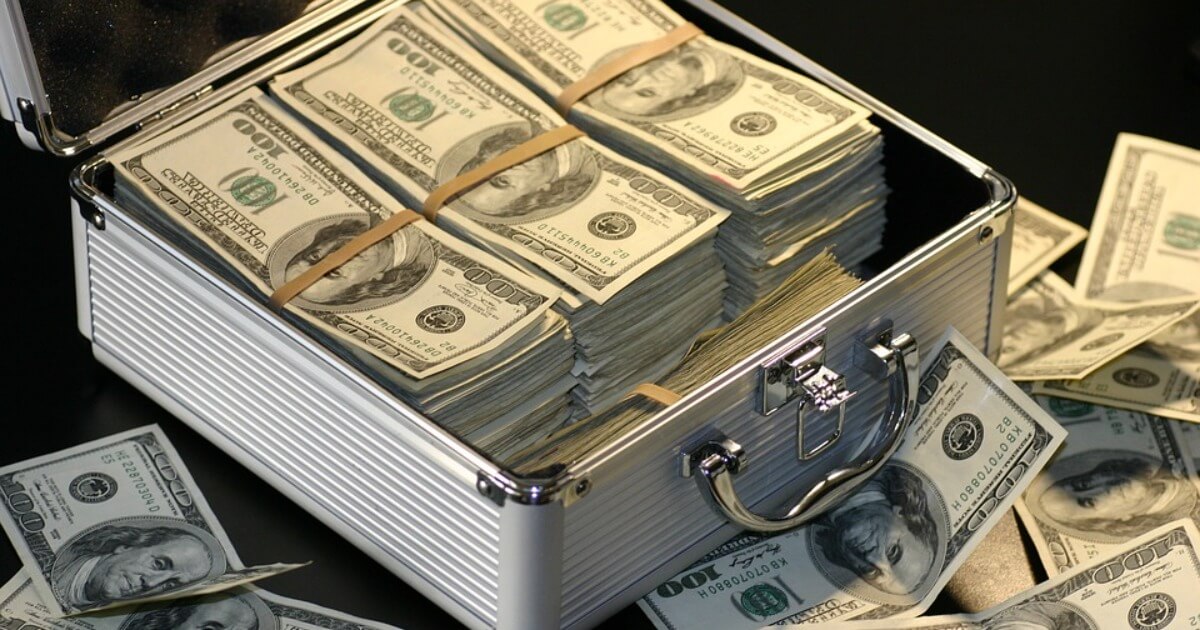Trump: The Big Lie and the Big Rip-Off
How Donald Trump scammed his supporters to pocket hundreds of millions.
January 18, 2023

A Strategic Assessment Memo (SAM) from the Global Ideas Center
You may quote from this text, provided you mention the name of the author and reference it as a new Strategic Assessment Memo (SAM) published by the Global Ideas Center in Berlin on The Globalist.
As the calendar year 2023 opened, Donald Trump lost yet another attempt to convince a New York judge to hurl aside ongoing investigations by New State Attorney General Letitia James into alleged tax fraud by the Trump organization.
His personal tax declarations for recent years have been made public and the U.S. Justice Department is moving ahead with its investigations of his possible criminality.
The scam of the century
Yet, against this background and in plain view, Trump has pulled off a stunning scam – one that is unprecedented in its audacity. It is unethical, but it may not be illegal.
Trump pocketed over $250 million – enough to give relatively small rewards to friends and cronies. For example, even Herve Pierre Braillard, Melania Trump’s fashion advisor, was able to pocket $100,000. Where did the cash come from?
Starting with $100 million
Before the full election results were known in November 2020, Trump called on his supporters across the United States to contribute cash to finance legal challenges to stop Joe Biden’s “Big Steal” of the election through fraud.
Within three days, those supporters provided more than $100 million – Trump knew that here was an opportunity to secure enormous sums.
The full details of the scam have now been published. Yet, in the turmoil that rages across U.S. politics right now, the story has yet to secure media attention. It will. It is too big and too brash to be ignored.
The story is found in Appendix Three of the newly released 800-page Final Report of the Select Committee of the U.S. House of Representatives to Investigate the January 6th Attack on the United States Capital.”
This section of the report is supported with 229 reference notes. Trump’s claim that Biden’s victory was “the Big Lie,” was used, stated the Committee to promote “The Big Rip-Off.”
Power and greed
As a tsunami of cash flooded into the supposed legal defense fund managed by Trump’s staff and the Republican National Committee (RNC), so Trump’s son-in-law and official White House Advisor Jared Kushner became involved in setting up a daily tracker of incoming cash.
Kushner and Trump were public officials at the time of this fundraising campaign. They devised a plan to ensure that most of the proceeds would flow directly into Trump’s hands, with large latitude for him to do with the cash as he pleased after he left the White House.
Their scheme fits neatly into the definition of corruption: Abuse of public office for private gain.
After all, as the Committee report pointed out: “There was no “Official Election Defense Fund” – it was simply a marketing tactic.”
Lies and more lies
Within one week of the election, Kushner was involved in establishing the “Save America” PAC (political action committee).
This secured the flow of incoming cash from the fraud campaign to move into PAC and so allow Trump to pay for his personal expenses (such as travel or hotel stays), and enrich himself and his associates.
So great was Trump’s control over the RNC that its messaging to secure funds continued to call Biden the “illegitimate President” after December 14 when it was clear that Biden had the Electoral College votes to make him the U.S. President and when U.S. Senate Republican leader Mitch McConnell publicly accepted this fact.
According to witness testimony to the January 6 Committee, the campaign continued in full-gear — spreading lies and calling for donations to pay for court cases because it was proving to be “effective” for fundraising.
The report does not say that the fundraising was illegal. The United States’ systems of political action committees and donations can so often promote corruption — albeit rarely if ever on the scale that Trump pursued.
Planning a “wild” day
There was no fact-checking or legal oversight of the messages being sent out. The copywriters developed messages mostly based on statements and tweets issued by Trump.
The recipients of sometimes as many as 25 e-mails each day were besieged via technical platforms primarily provided by the Salesforce company that failed to challenge the veracity of the messages and only stopped servicing the account after the January 6 riot.
After multiple court challenges to the election’s outcome were hurled aside by honest judges, Trump moved into top gear with tweets in the early morning hours of December 19.
He called on his supporters to travel to Washington for a “wild” time on January 6 – the day that Congress would formally approve Biden’s election.
At the same time, he continued to appeal for more and more cash from his supporters to challenge the election fraud.
Cash for friends
As donors sent cash in the expectation that this would cover legal costs to counter the “big steal,” so Save America was moving to distribute the income.
Fashion designer Braillard received his payment for “strategic consulting.” Other associates of Trump received larger sums of cash.
For example, a company registered in Delaware called Hudson Digital LLC. Hudson Digital LLC was established in late January 2021 and received over $420,000 for “Digital consulting.”
The report stated that it could trace ownership to Dan and Catherine Scavino (the latter was President Trump’s White House Deputy Chief of Staff for Communications and Director of Social Media).
Then, over $350,000 went to another Delaware registered company called Pericles LLC that the report said is controlled by former Trump policy advisor Vince Haley, by Ross Worthington a speechwriter who wrote Trump’s January 6 speech, and by Taylor Swindle, the Chief Financial Officer for Gingrich 360 – an organization run by former Republican Congressman Newt Gingrich.
There is no indication in the report that Hudson Digital or Pericles provided valuable services to Trump after he left office. Further, more than $10.6 million went to Event Strategies, Inc., the preferred staging company for President Trump that staged the January 6 rally that preceded the Capitol Hill riot.
Following the money is the mantra of corruption investigators and the Committee did yeoman’s work as illustrated by in Appendix Three of its report. Nevertheless, Trump has seemingly got away with this scam, as he has with so many others.
Takeaways
Donald Trump has lost yet another attempt to convince a New York judge to hurl aside ongoing investigations into alleged tax fraud by the Trump organization.
Before the election results were known in November 2020, Trump called on his supporters to contribute cash to finance legal challenges to stop Biden’s “Big Steal.” Within days they provided more than $100 million.
Trump has pulled off a stunning scam – one that is unprecedented in its audacity. It is unethical, but it may not be illegal.
Trump’s control over the RNC was so great that its messaging to secure funds continued to call Biden the “illegitimate President” even when it was clear that he had won the Electoral College to make him the US President.
The US’s systems of political action committees and donations can so often promote corruption -- albeit rarely if ever on the scale that Trump pursued.
A Strategic Assessment Memo (SAM) from the Global Ideas Center
You may quote from this text, provided you mention the name of the author and reference it as a new Strategic Assessment Memo (SAM) published by the Global Ideas Center in Berlin on The Globalist.


